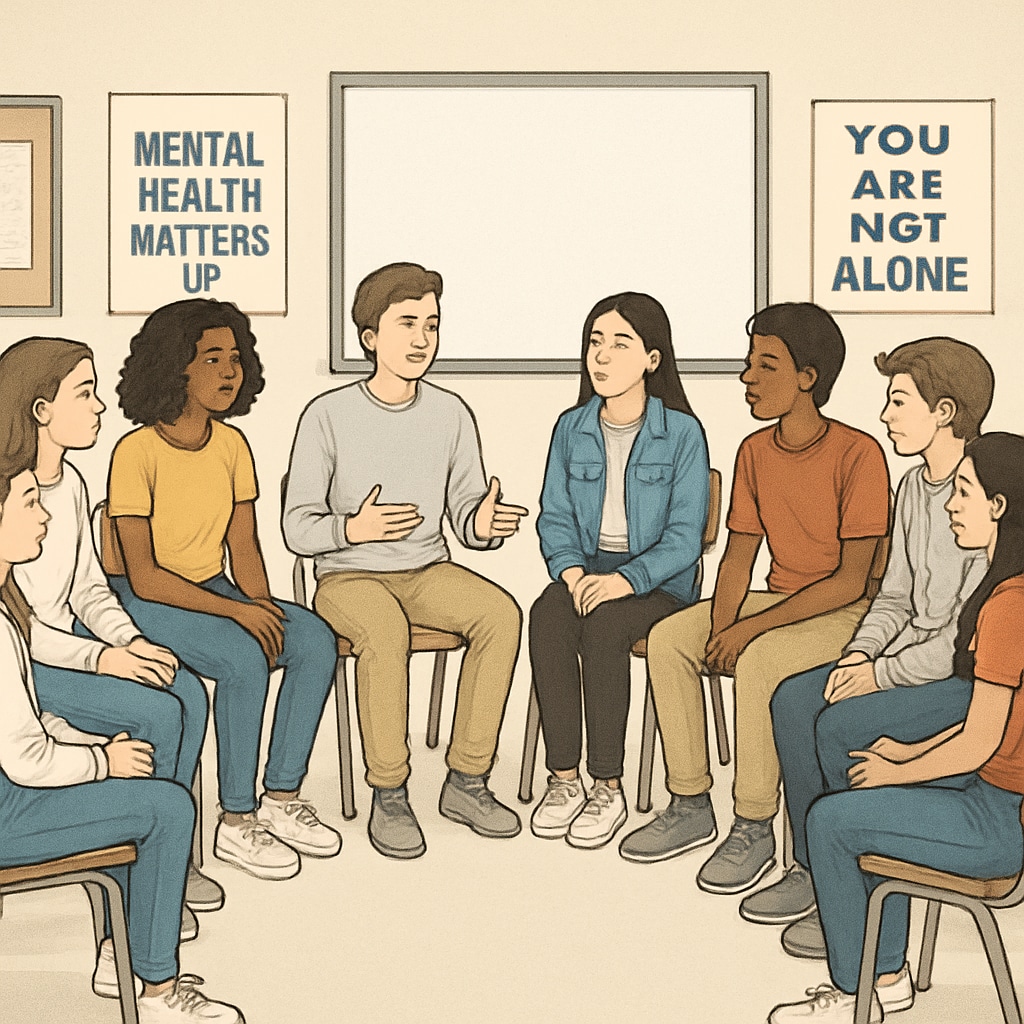In the face of rising concerns about adolescent well-being, organizing mental health talks for high school students has become increasingly vital. Medical students, with their specialized knowledge and relatable age proximity, can play a pivotal role in bridging the gap. This article delves into the feasibility of such initiatives and outlines practical steps for medical students to organize impactful mental health talks in high school settings.
The Importance of Addressing Mental Health in High Schools
High school years are fraught with academic pressure, social challenges, and emotional growth. These factors contribute to mental health issues, such as anxiety, depression, and stress, which are often unaddressed due to stigma or lack of resources. According to the World Health Organization (WHO), one in seven adolescents aged 10–19 experiences a mental health condition globally. Early intervention, education, and open conversations are essential to mitigating these risks.
Medical students, who are well-versed in psychological concepts and empathetic communication, can bridge this gap effectively. Their ability to offer scientifically accurate information while fostering a nonjudgmental atmosphere makes them ideal facilitators for such discussions.

Feasibility of Medical Students Organizing Mental Health Talks
Organizing mental health talks is a feasible initiative when approached strategically. Here’s why:
- Relatability: Medical students are closer in age to high schoolers, making them more relatable than older professionals.
- Knowledge Base: Their academic training equips them with accurate and up-to-date psychological insights.
- Cost-Effectiveness: Such initiatives often require minimal funding, as they can be hosted in school auditoriums or classrooms.
However, challenges such as scheduling conflicts, sensitivity around mental health topics, and gaining school approval must be addressed. Collaboration with school counselors and administrators is crucial for success.
Practical Steps to Implement Mental Health Talks
To ensure a successful mental health talk, medical students can follow these steps:
- Establish Contact: Reach out to school administrators or counselors to discuss the initiative. Highlight the benefits and provide an outline of the proposed program.
- Customize Content: Tailor the talk to suit the school’s demographic. For example, focus on stress management techniques during exam seasons or address social media’s impact on mental health.
- Engage Expertise: Partner with mental health professionals to ensure the talk is both informative and sensitive. This collaboration adds credibility and depth.
- Incorporate Interactive Elements: Use role-playing, Q&A sessions, or anonymous feedback forms to engage students actively.
- Provide Resources: Share helpline numbers, school counselor details, and online resources, such as information from The National Institute of Mental Health.

Long-Term Impact of Such Initiatives
These mental health talks have the potential to create lasting change. By fostering an environment where mental health is openly discussed, schools can reduce stigma and encourage students to seek help when needed. Additionally, such initiatives empower high schoolers with coping mechanisms and foster resilience, both of which are critical for their future well-being.
Medical students also benefit significantly. These experiences enhance their communication skills, empathy, and understanding of adolescent mental health, which are invaluable in their future medical careers.
In conclusion, by leveraging their knowledge and relatability, medical students can make a profound impact on high school students’ mental health. Through careful planning, collaboration, and genuine engagement, they can help create a culture of openness and support, ultimately improving the mental well-being of the next generation.
Readability guidance: This article uses short paragraphs, interactive lists, and accessible language to enhance comprehension. Transition words are incorporated to ensure a smooth reading experience.


